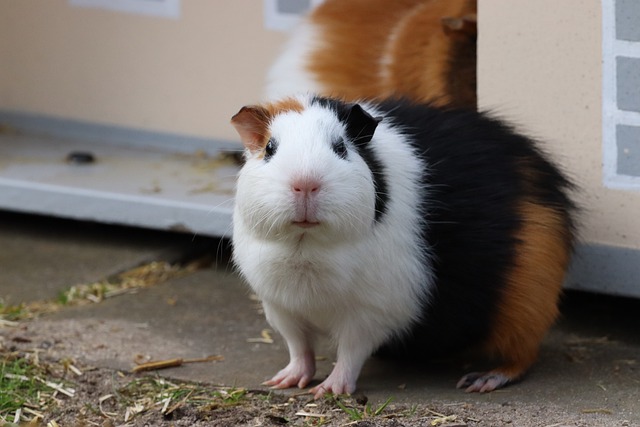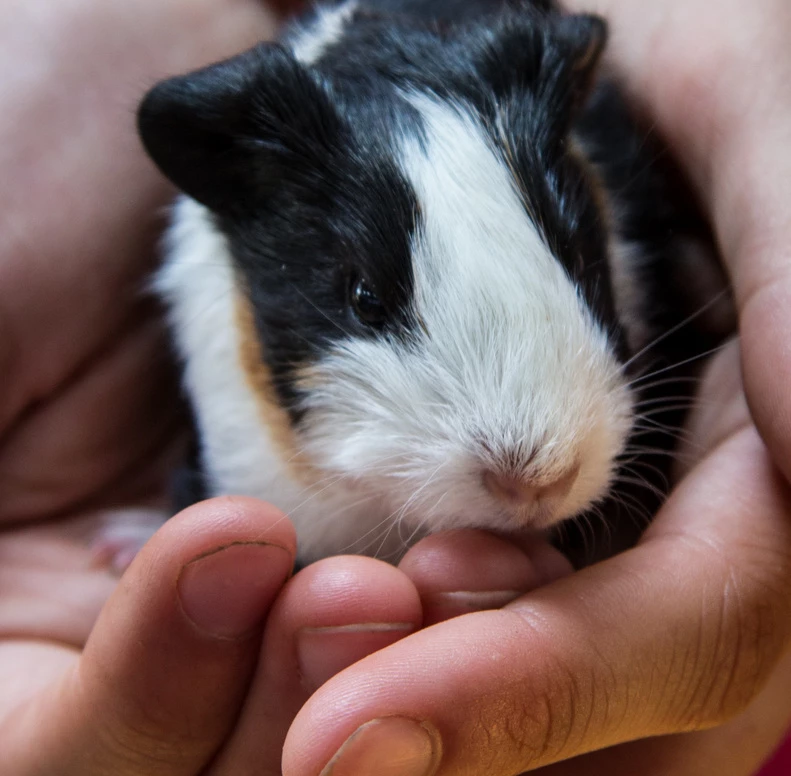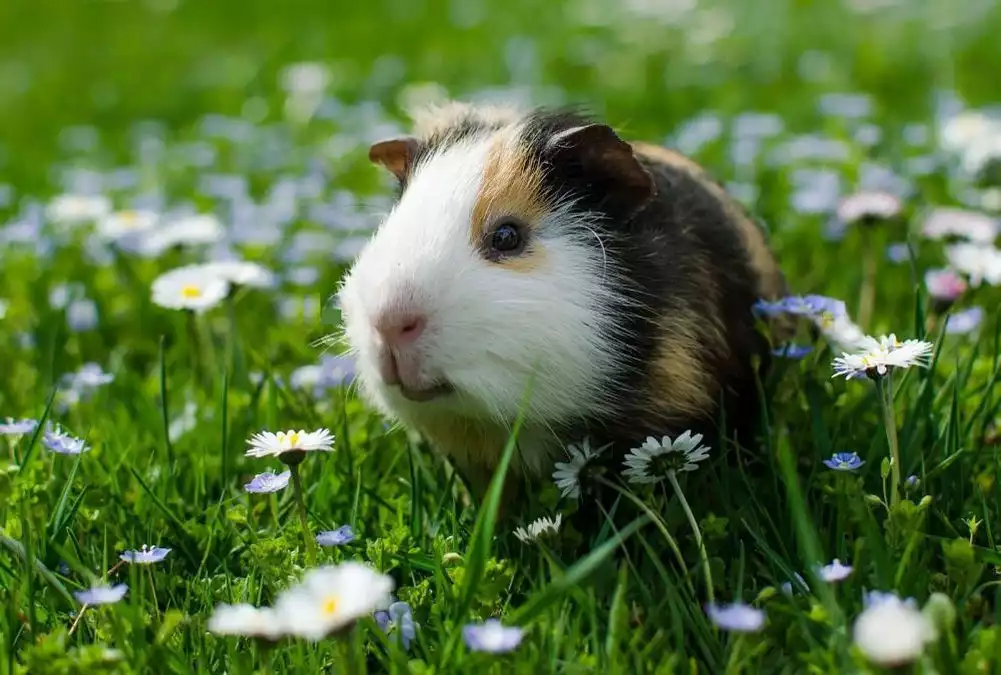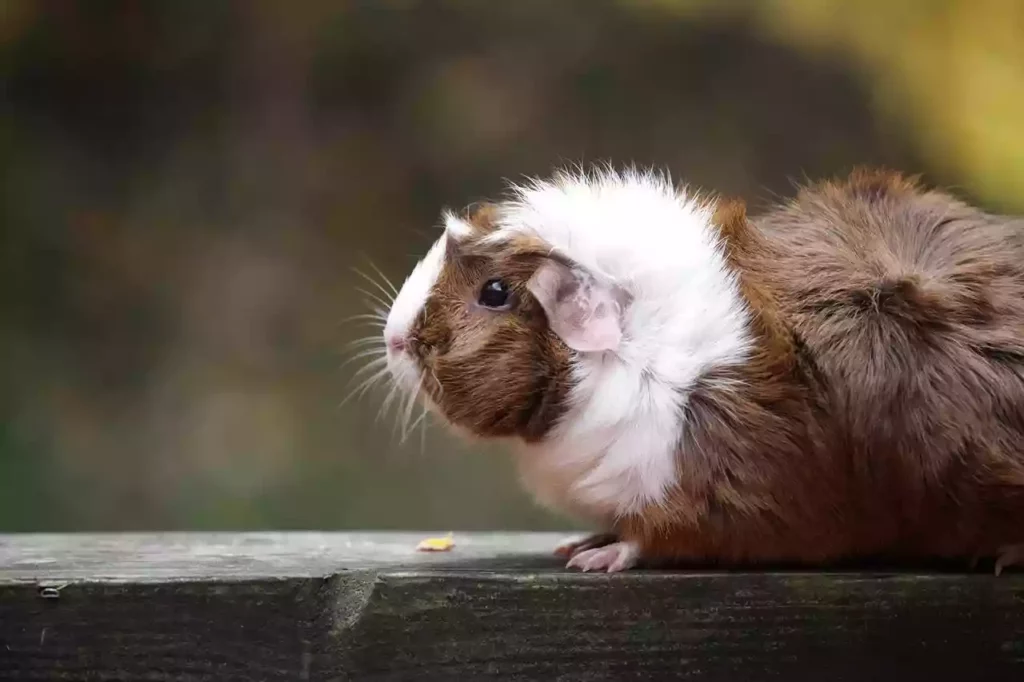How to raise and care for young Guinea Pigs? Guinea pigs are adorable and wonderful pets to keep as pets. It is possible that you have already taken care of an older guinea pig. That experience will definitely work, but you need to learn more for better care of your pet.
In the same way that you would take special care and attention to your child, you must do the same for your pups. After their birth, if possible, leave them with their mother, who will nurture them naturally for a few hours.
She will clean her pups and feed them after swallowing her placenta. Let’s find out everything you need to know about raising young Guinea Pigs.
The Diet Plan
Table of Contents
Guinea pigs do not take milk immediately after birth; the process may even take up to 24 hours. After three days of delivery, their mothers show them how to eat solid foods. Despite this, the time has not yet come to wean them.
It is essential that guinea pigs consume milk to protect themselves against bacteria present in alternative food sources. Hay is a major part of the diet of Guinea pigs. Provide them with grasses like orchard brome or timothy.
Despite being herbivores, other hays and legumes have too much protein and calories for your baby guinea pig. They also require fresh fruits and vegetables in addition to hay. One cup a day will be adequate for them.
It will help if you give your guinea pigs dark green leafy vegetables rich in vitamin C. You can also include many other vitamin C-rich fruits, like pears, oranges, and apples. You can provide your puppies with some pellets in limited quantities in their diets; these are nutritious and good for their teeth.
Recommended: Can Guinea Pigs Eat Apple? Find out the Pros and Cons.
How To Feed Young Guinea Pigs?
Don’t feed your baby guinea forcefully, be gentle and patient while introducing the milk bottle. But, before offering the bottle, make sure the baby is steady. Drop some milk on its mouth and let it lick until it begins to drink on its own.
Ensure that your Pup does not consume milk or water accidentally, as this could result in pneumonia, which is life-threatening.
Weaning Process
Weaning may begin after four weeks, and the mother will reduce her feeds per day from three to four times.
If you are raising the Pup without its mother and feeding it milk formula, you will need to start by diluting the milk with clean water, increasing the proportion of water to milk until the Pup loses interest.
Need Clean Water All Time
There should always be clean water available.
A sipper bottle placed strategically in the cage is required to allow pups to take water comfortably.
You can also place the drinking water in a heavy bowl that won’t tip over and spill.
Comfortable Shelter
It would be best if you did not use wood enclosures for guinea pigs because they will chew on them, and it is hard to clean. It is preferable to use cages made from wire, glass, plastic, or stainless steel. The enclosure must be large enough for a nursing mother and her pups. A minimum of 8 or 10 square feet should be sufficient.
There should be enough space for puppies to explore and play around in their new environment. Furthermore, the enclosures should be well ventilated and escape-proof. The cages must have no sharp edges, as these could harm them. Clean the habitat at least once a week, and let it dry before returning the pups.
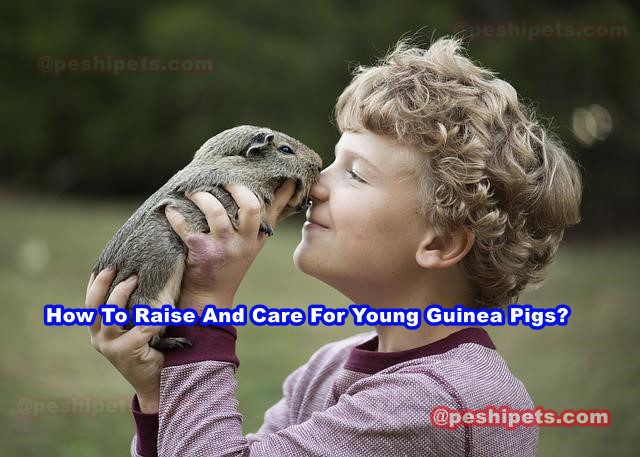
Most cages are made for elder guinea pigs, which may cause the pups to squeeze through the pen bars if the bars are too wide. You can purchase grids with much smaller spacing and secure them to the cell at your local pet store.
Another option is to put a deeper pan on the floor to make it harder for pups to climb out. Solid flooring is preferable since it is safe for the pups but more difficult to maintain when it comes to flooring. It is easier to clean and maintain wire flooring, but it poses risks of injury to puppies.
When they fall through the wire and try to free themselves in panic, they can injure their feet and hocks or break their legs.
How to place the cage?
Guinea pigs are sensitive to noise, so the cage must be placed in a quiet place within your home. During their first weeks, the puppies should be in a peaceful environment.
The enclosure should be kept away from direct sunlight, windy, and cold areas where these extreme weather conditions can adversely affect their health.
Bedding Placement
Typical bedding consists of several inches of hardwood shavings or shredded newspaper. The bed must be changed twice a week since it becomes wet with urine and water and soils with droppings and leftover food.
If you only have one guinea pig, you may need to place a warm water bottle wrapped in a soft towel inside the cage to keep it warm.
How to handle your Pup?
Before picking up a pup, wash your hands thoroughly to avoid any foreign odors. It might be helpful to rub your hands on the mother’s body to get her scent onto your hands, so the Pup feels more comfortable, or you could rub it on some fresh hay.
It’s best to pick up your Pup from the front where it can see you slowly. Put it back in the cage gently if it shows discomfort, and try again later. You should avoid handling your Pup while sleeping or nursing since it will likely bite or become scared.
You may hear it squeak or squirm to show your displeasure. It is best not to keep the Pup away from its mother for too long, as this will cause it distress. It would help if you held the Pup tightly but gently so that it does not fall. A fall from a few feet high can cause severe injury to a baby guinea pig.
Guinea pigs are jumpy and quite unpredictable; therefore, they should be handled with caution. It is important to begin handling your puppy early to get used to human interaction. Consequently, they will be well socialized with people, making them good pets.
Recommended: Can We Consider Rats as Pets?
Separation and Precautions
Guinea pigs are harmless and friendly. You will see that they grow fast and become independent sooner than you may have ever imagined. It would help if you were cautious because some guinea pigs may chew on the ears of their cagemates.
Whenever a puppy is eating solids well and has been fully weaned after eight weeks, it can be transferred to a new home. To ensure the Pup is ready for a new home, taking the Pup to the vet may be necessary.
Baby Guinea Needs Entertainment
Baby guinea pigs need toys to keep them entertained; you can either buy them at a pet store or use items that you already have around the house.
Guinea pigs like to hide inside objects, only coming out when people are nearby.
Cautious about their Excretion
Newborn puppies must be stimulated to pass urine and waste.
In their mother’s absence, use a cotton ball dipped in warm water to stimulate the abdomen and genital areas for 10 to 20 minutes.
When you feel the Pup’s muscles contracting, it will be ready.
Conclusion
Young guinea pigs require tender, loving care to survive.
Pay attention to symptoms of illness, such as diarrhea, poor appetite, overgrown teeth, ringworm, fever, irritability, and bleeding gums.
As soon as you see any of these signs of disease, it would help if you immediately take your pet to a veterinarian for treatment.
Have fun taking care of adorable pets!

